
1. Lee Soo-Man. His initials, as we know it, is the famous ‘SM.’
2. Back to the year of 1999 when SM Entertainment has plans to be listed on KOSDAQ (Korean Stock Exchange trading platform).
3. At the time, the listing requirement was at least 1 billion KRW capital. But in 1999, SM’s capitalization was only 50 million KRW.
4. SM had to increase their capital. They needed way more money. So what did they do? Issue new stocks to increase the paid-in capital, growing the body into a chunky 1.15 billion KRW.
5. It was the result of a tweak from the man himself, Lee Soo-Man. He had withdrawn 900 million KRW from SM Entertainment’s bank account and 250 million KRW from SM Enterprise’s bank account.
6. Lee Soo-Man had used a total of 1.15 billion KRW to increase the company’s capitalization.
7. In short, it was a ‘sweep’ (automatically transferring or ‘sweeping’ money from one account into a separate account with the aim of earning a higher rate of return).
8. The logistics is simple: sweeping money out of SM and sweeping it back into SM.
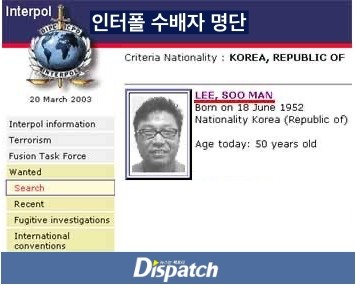
9. The start of SM was Lee Soo-Man's shady sweep.
“A capital increase is used to attract funds from external investors into the company. However, in the case of disguised payments, no new money has actually entered the company. He took the money out from the company and put it back in, making a net ‘zero.’ This is an act of deceiving investors as if the company has attracted an investment. This is basically fraud.” (Stock exchange official)
10. In March 2000, Lee Soo-Man was holding 66.99% of SM Entertainment’s shares, which is an equivalent of 1,607,800 shares. 4% was under his Father’s name and 3.3% under his Mother.
11. In April 2000, SM Entertainment made their debut on KOSDAQ with a public offering price of 12,000 KRW. On June 9th later that year, SM Entertainment’s market capitalization was valued at 180 billion KRW. The value of the company had more than quadrupled.
12. Now at this point, you must be wondering how much the 1.15 billion KRW that had been pinched by Lee Soo-Man grew in one year. It is calculated to approximately 90 billion KRW. (As of June 2000, Lee Soo-Man's stake in SM Entertainment was 53.59%).
13. In January 2003, Lee Soo-Man was put on Interpol’s wanted list. He surrendered back to Korea in May later that year and was sentenced to 3 years probation with a 2 year stint should he violate.
14. Dispatch exclusively got hands on the court ruling.
“Lee Soo-man embezzled 1.15 billion KRW in company funds and used it to buy shares in the company. He pretended to pay for the shares with a supposed increase in capital and stated false facts as if the company's capital had increased. Due to the serious nature of the crime, a punishment corresponding to the severity of the crime is inevitable.” (Court ruling)
15. But wait, what did Lee Soo-Man’s ‘shield’ have to say in defense?
“Lee Soo-Man is not the only one who took money from the company. He is not the only culprit. It was a joint agreement that was discussed at an executive meeting and Lee Soo-Man took the lead on behalf of the company. Most importantly, he paid back the amount straight away.” (Lee Soo-Man’s so-called ‘shield’)
16. Dispatch was able to get in touch with a former SM Entertainment executive from the time.
“A disguised payment was made for the purpose of getting listed on the stock exchange. There was no board meeting prior to this. The meeting notes were just hastily made at the attorney’s office and everything was done under Lee Soo-Man’s lead. And when the investigation began, Lee Soo-Man suddenly paid back the rest of the money.” (Former SM Entertainment executive)
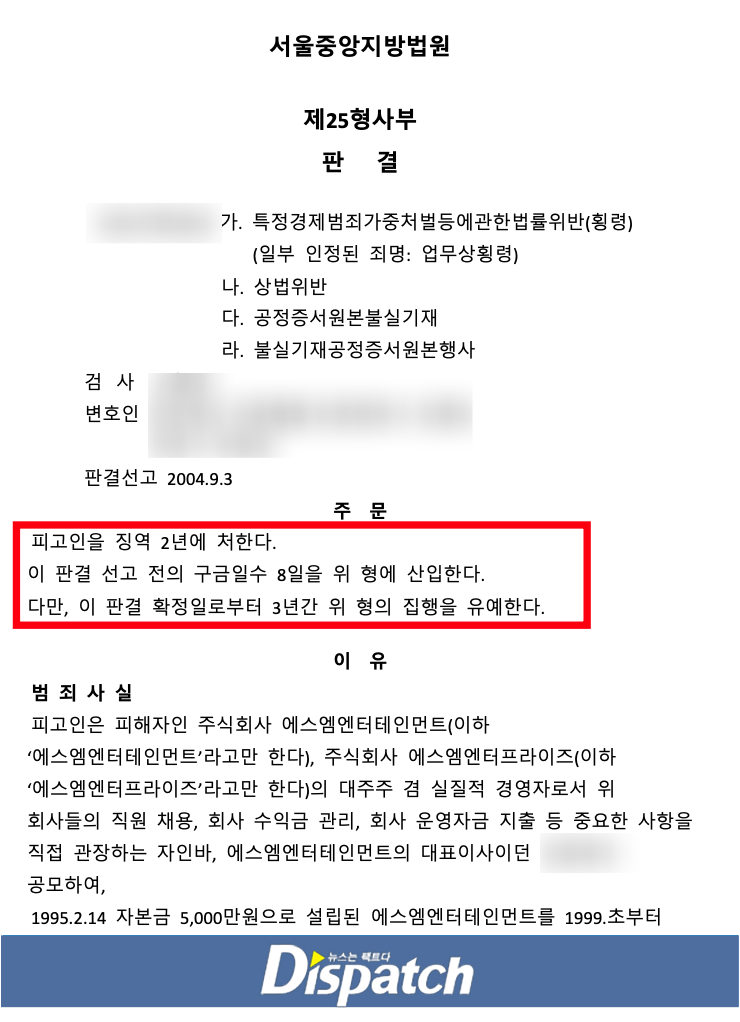
17. Lee Soo-Man took 1.15 billion KRW from the company. However, that money grew exponentially by 400 times.
18. An example of how Lee Soo-Man (and his parents) made money with SM Entertainment's stocks.
19. Lee Soo-Man's Mother sold 80,000 shares between May 16th and 18th in 2001, at an average price of 11,904 KRW.
20. The lucky mother gained roughly 1 billion KRW.
21. On November 28th in 2001, Lee Soo-Man sold 100,000 shares for an average selling price at 9,900 KRW. This translates to robbing 1 billion KRW worth of shares from the market.
22. Fast forward to the year of 2005. This is the year Lee Soo-Man and his father became rich.
23. The first factor was the ‘exit’ of Lee Soo-Man’s Father.
24. On June 20th, a total of 157,618 shares sold at the selling price of 34,600 KRW. The profit was 5.454 billion KRW.
25. Lee Soo-Man also sold 312,382 shares to the public market at a price of 33,547 KRW worth 10.5 billion KRW.
26. In June 2005 alone, Lee Soo-Man and his father put a whooping 15.9 billion KRW into their pockets.
27. Even though he was already so rich, Lee Soo-Man still had his hands on 43.87% (2.07 million shares) of shares in the company.
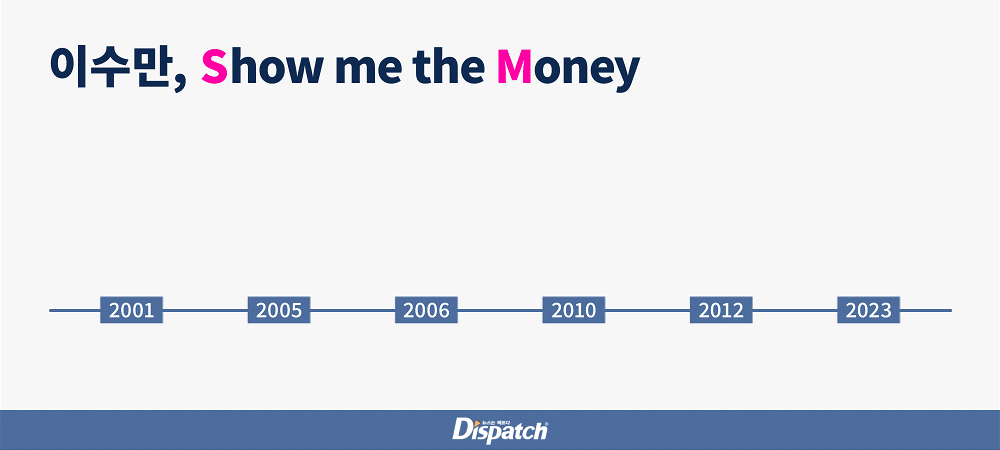
28. Next, how Lee Soo-Man increased his stocks.
29. On April 9th in 2002, SM Entertainment merged with ForME, a management company owned by Lee Soo-Man (reasoning and further details in point 86).
30. Lee Soo-Man received 870,000 new shares when he handed over ForMe to SM Entertainment. His shares increased to 2.38 million shares and his shares increased to 54.8%.
31. On June 20th in 2005, Lee Soo-Man sold 310,000 shares and conducted a 100% free capital increase per share the next month on July 8th. Now the number of shares held had increased to 4,386,866.
32. On November 24th in 2005, Lee Soo-Man sold 800,000 shares. The price per share was 13,300 KRW, tallying up to a gain of 10.6 billion KRW.
33. Two months later, SM Entertainment directed a paid-in capital increase through shareholder allocation. Lee Soo-Man issued stock to investors, with himself being allocated to 673,741 shares. The price per share was 9,020 KRW, worth about 6.1 billion KRW.
34. He was sweeping out (selling) at the peak (13,300 KRW per share) and sweeping in (relisting and buying) the market at its lowest (9,020 KRW per share). Very tactiful.
35. It was Lee Soo-Man’s never-ending fountain of money.
36. On January 27th in 2012, Lee Soo-Man sold 400,000 shares at a value of 44,200 KRW. The selling price was a total of 17.7 billion KRW.
37. One month later, Lee Soo-Man directed a paid-in capital increase. He bought shares at 10% less: 40,200 KRW per share.
38. Then on March 28th in 2012, Lee Soo-Man bought 351,597 shares.
39. Moreover, a free-capital increase was carried out again to pocket an additional 399,306 shares.
40. And finally…
41. Lee Soo-Man handed over 14.5% of his shares to HYBE for 422.8 billion KRW. A total of 3,523,420 shares were transferred at a selling price of 120,000 KRW per share (but he still had 868,948 shares left).
42. Yes that’s right. Lee Soo-Man had chosen to hand over his shares to HYBE, a.k.a. SM’s biggest rival company.
43. Lee Soo-Man embezzled 1.15 billion KRW and relisted SM Entertainment. Over the course of 23 years, he sold tens of thousands of shares and gained 450 billion KRW, excluding his parents’ profit valued at 8 billion KRW.
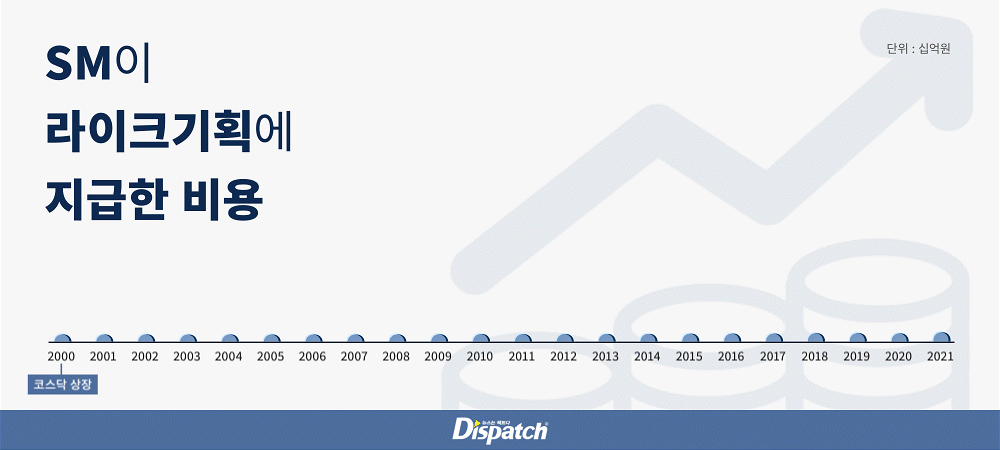
44. Lee Soo-Man has a hidden talent for making money. Next was his creation: 'Like Planning.'
45. Look at the timeline. In 1995, Lee Soo-Man set up SM Entertainment and in 1997, set up Like Planning.
46. In April 2000, Lee Soo-Man disclosed only SM Entertainment to the stock market. Like Planning and SM Enterprise were just SM’s subsidiary companies.
47. Dispatch took a look at the company introduction that SM Entertainment submitted to the stock exchange at the time.
48. “SM Enterprise is an exclusive management company for our artists. SM Entertainment pays 20% of the album sales to SM Enterprise as commission.”
49. “Like Planning directs music advisory and production for SM Entertainment’s artists. SM Entertainment pays 15% of the album sales as commission.”
50. The tragedy of SM Entertainment starts here. First of all, let's look at Like Planning.
51. Even after listing SM Entertainment in 2000, SM Entertainment provided production services to Like Planning.
52. Lee Soo-Man was a registered director at SM Entertainment. At the same time, he was the chief producer so in the same sense, he was getting salary from SM Entertainment.
53. But let’s point out here that Lee Soo-Man is signed up for 15% of album sales revenue, not profit.
54. It’s important to remember that is 15% of revenue, not profit.
55. Then how much did Like Planning earn?
56. In 2000, SM Entertainment paid Like Planning 2.1 billion KRW as service fees. That same year, SM's operating profit was 1.846 billion KRW, so Like Planning conquered.
57. For the next 22 years, SM Entertainment paid Like Planning a license (service) fee. Note that in 2015, service fees are renamed to license fees.
58. So here is the ultimate question. How much did Lee Soo-Man take in total?
59. 174.1 billion KRW.
60. 2.092 billion KRW in 2000.
1.619 billion KRW in 2001.
2.377 billion KRW in 2002.
870 million KRW in 2003.
1.87 billion KRW in 2004.
1.357 billion KRW in 2005.
1.45 billion KRW in 2006.
1.281 billion KRW in 2007.
2.019 billion KRW in 2008.
3.525 billion KRW in 2009.
6.198 billion KRW in 2010.
4.77 billion KRW in 2011.
6.356 billion KRW in 2012.
7.463 billion KRW in 2013.
7.463 billion KRW in 2014.
9.885 billion KRW in 2015.
11.04 billion KRW in 2016.
10.833 billion KRW in 2017
14.525 billion KRW in 2018.
15.127 billion KRW in 2019.
12.916 billion KRW in 2020.
24.07 billion KRW in 2021.
25.5 billion KRW in 2022.
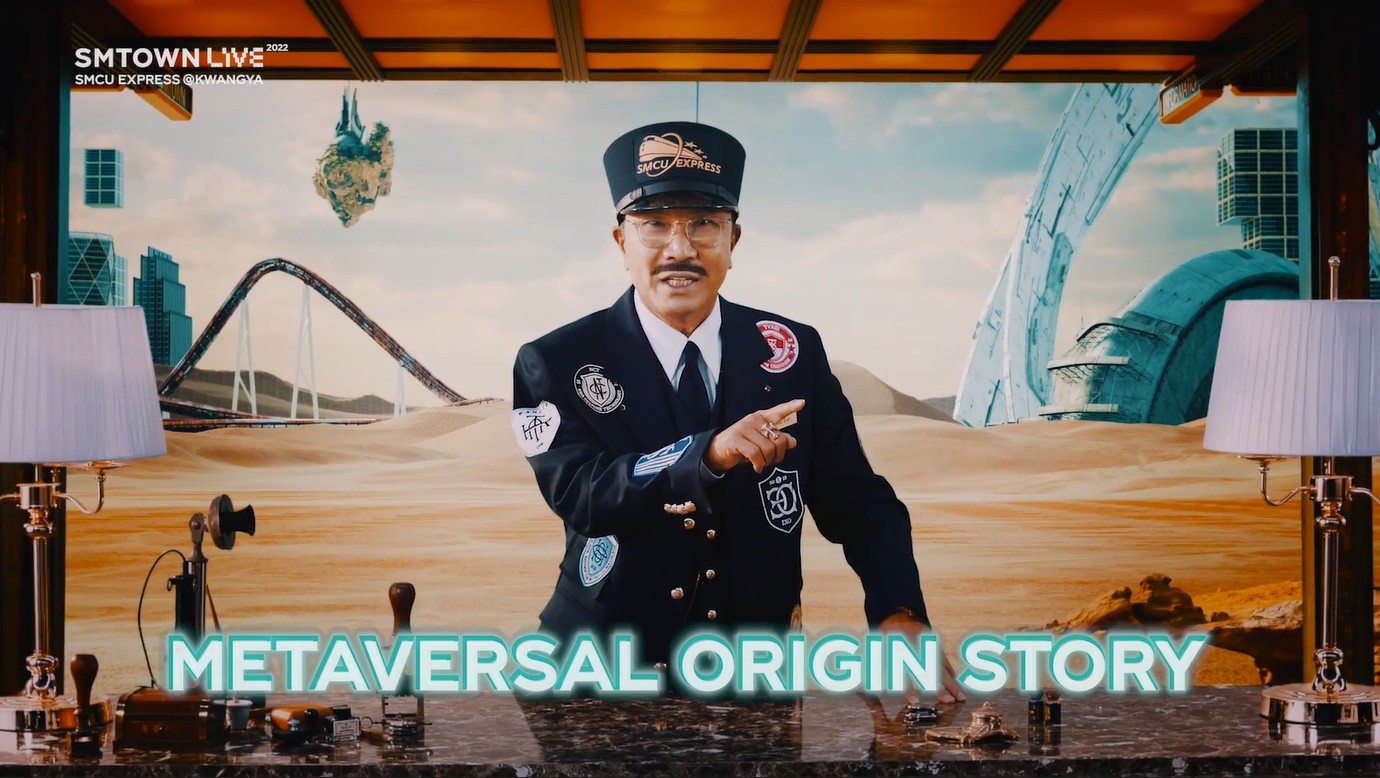
61. How can Like Planning be justified?
62. According to Lee Soo-Man, the answer is in Culture Technology. In a nutshell, it is the cost of utilizing Lee Soo-Man's expertise.
63. “All of SM's Intellectual Property (IP) is made with my ‘culture technology.’ Therefore, all should pay a fee for using my know-how!”
64. Lee Soo-Man defined himself as the source of all artists created by SM Entertainment.
65. So, 6% of SM Entertainment's total sales were requested (or taken) in the name of ‘license fees.’
66. On March 28th, 2022, CEO Lee Sung-Soo talked openly on ‘Sampro TV.’ Let's revisit last year’s talk.
67. “Why does 6% of SM Entertainment’s sales go to Like Planning?” (Sampro TV)
68. “SM Entertainment is a company that creates, commercializes and expands core IPs. In 2012, SM Entertainment declared a virtual SM universe. Looking ahead ten years into the future is the fundamental root and start of producing at SM Entertainment. The only one who can do this is Lee Soo-Man, the chief producer himself.” (SM Entertainment’s CEO Lee Sung-Soo)
69. “What is so unique about SM Entertainment’s producing in comparison to Park Jin-Young (JYP) or Bang Si-Hyuk (HYBE)? (Sampro TV)
70. “Think of it this way. Just because we all cook cuisines and are chefs, does it mean chefs should be paid all the same?This is not true. You need the expertise to fully understand this industry and talent to make the best content. We are a company that has been doing this in the best way for thirty years.” (SM Entertainment’s CEO Lee Sung-Soo)
71. “Are there other cases like this outside of Korea?” (Sampro TV)
72. “We are not a communist country under dictatorship. South Korea is a country of liberal rights. In fact, we seek advice from an external advisory agency and they recommended that 6% would be an appropriate rate. As advised, since then, this has been ongoing for twenty years. To say that we are atypical because the late joiners are not doing it this way? Not too sure about that reasoning.” (SM Entertainment’s CEO Lee Sung-Soo)
73. SM Entertainment’s CEO Lee Sung-Soo said, “I would like to end on this note.”
74. “Let's say that a company wants to do a global entertainment business. We ask ourselves, who will we need? In all honesty, if it were you, wouldn't you want to recruit Lee Soo-Man? And paying 6% of the sales revenue to recruit him? It sounds perfectly reasonable to me.” (SM Entertainment’s CEO Lee Sung-Soo)
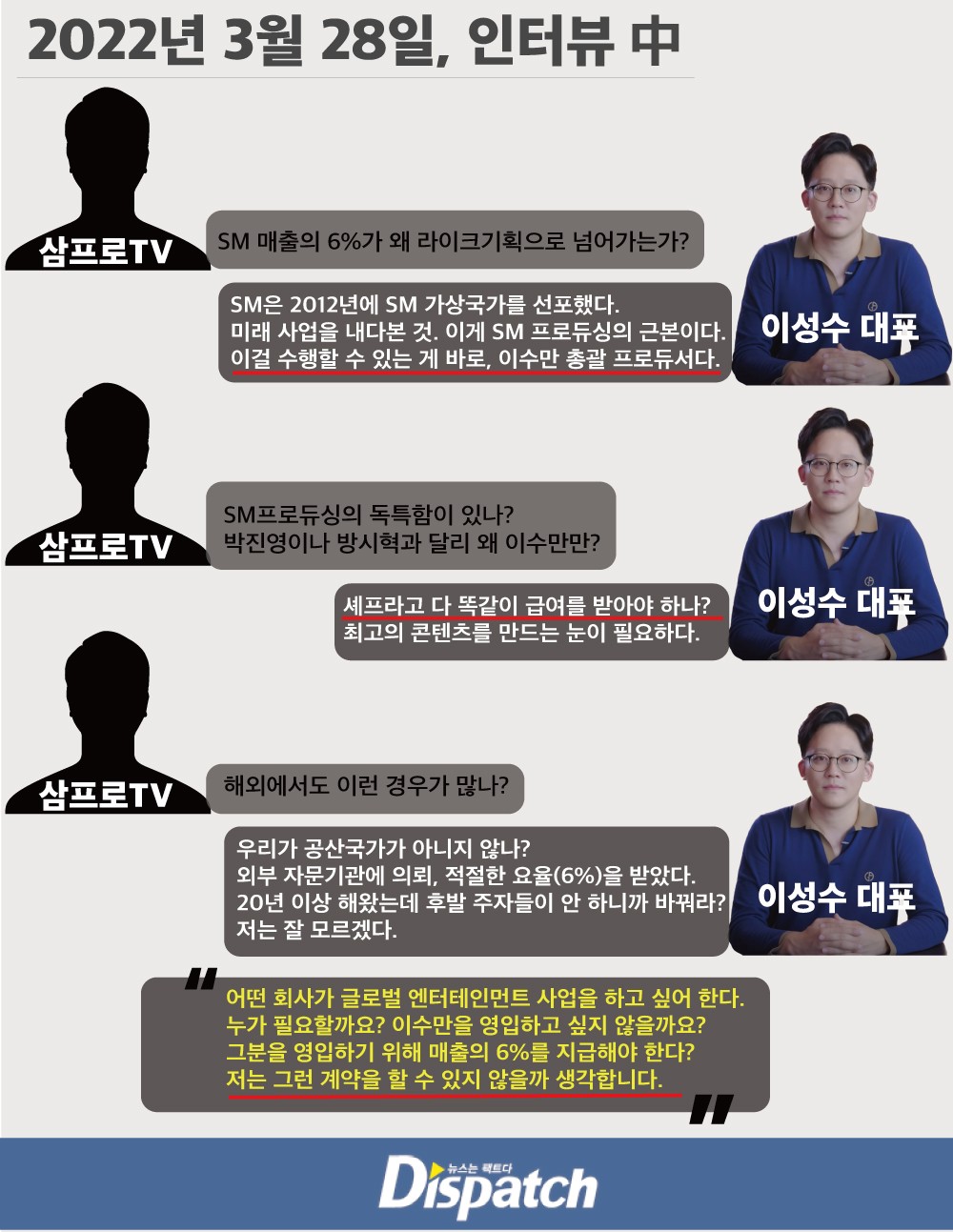
75. This was the reasoning behind SM Entertainment ‘giving’ money to Lee Soo-Man.
76. But it is this reasoning that led to the deterioration of SM Entertainment.
77. SM Entertainment recorded financial losses for three years from 2002 to 2004.
78. In particular, in 2004, even the operating profit was a minus of 588 million KRW.
79. However, in 2004, Like Planning received 1.8 billion KRW for license fees.
80. If this amount had not been taken from SM Entertainment, SM’s operating profit would have been down by 1.2 billion KRW.
81. In 2005, SM Entertainment's operating profit flipped to a surplus. By March, the stock price soared from 2,000 KRW to 17,000 KRW.
82. Then again, it crashed. In 2006, 2007 and 2008, SM Entertainment suffered a loss for three consecutive years.
83. From the shoes of a shareholder, the year of 2008 was unfair.
84. That is because SM Entertainment's operating profit for the year was a loss of 1.693 billion KRW. On the other hand, the license fee that Like Planning took was 2.019 billion KRW.
85. What if Lee Soo-Man's license fees had not leaked out? It calculates to a conversion from running a deficit to a surplus of 326 million KRW.
86. In October 2008, SM’s stock price dropped to 833 KRW. Now who would be convinced by CEO Lee Sung-Soo’s statement “not all chefs are paid the same salary because they cook cuisines.”
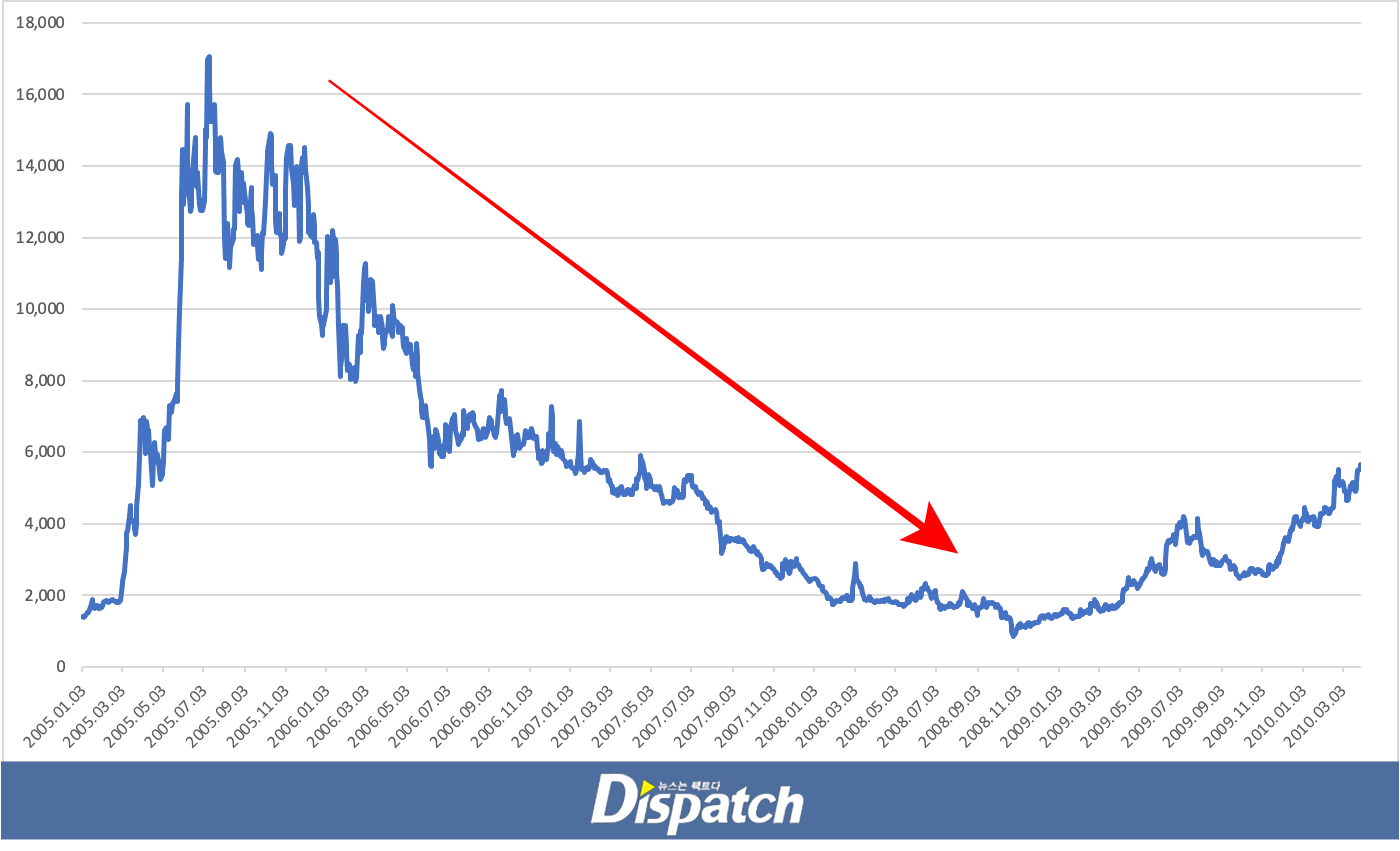
87. Not to fear though as Lee Soo-Man had another trick up his sleeve – SM Enterprise.
88. SM is a management company. However, when Lee Soo-Man listed the company in 2000, he operated a separate manager service company called SM Enterprise.
89. Artists “managed” by SM Enterprise include H.O.T., S.E.S., Shinhwa, Fly to the Sky, Boa Kwon etc.
90. SM Entertainment paid 20% of the album sales to SM Enterprise in the name of ‘manager service fees.’
91. Over the course of 3 years, 5.96 billion KRW was yanked out. 2.779 billion KRW in 2000, 2.133 billion KRW in 2001 and 994 million KRW in 2002.
92. in 2002, Lee Soo-Man merged SM Entertainment and SM Enterprise together. From then, no more money would be leaking out.

93. Lee Soo-Man's greed was ‘world class.’ He created an overseas corporation to develop a Season 2 of ‘Like Planning.’
94. In 2019, Lee Soo-Man establishes ‘CT Planning Limited’ (CTP) in Hong Kong.
95. CTP was Lee Soo-Man’s window and logic.
96. A window that can draw back 6% overseas to justify 6% back at home.
97. in 2019, SM joined hands with ‘Capitol Music’ and debuted boy group ‘SuperM’ globally. In 2022, SM shook hands with ‘Warner Records’ and girl group ‘aespa’ made their debut in the US.
98. It has been reported that Lee Soo-Man also declared a right to 6% of license fees from both Capitol Music and Warner Records.
99. According to CEO Lee Sung-Soo, the 6% license fees all went directly to Lee Soo-Man’s overseas corporation CTP. A genuine tax evasion.
100. So is SM a collaborator, bystander or a deceived? We go back to 'Sampro TV.’
101. Does Lee Soo-Man receive 6% from others besides from SM?” (Sampro TV)
102. “Of course. He collaborated with Beatles’ music record label ‘Capitol Record’ to release SuperM’s album. The Capitol Music Group also pays 6% royalties to Lee Soo-man.” (SM Entertainment’s CEO Lee Sung-Soo).

103. Show me the Money
104. How much money did Lee Soo-Man take out of his SM wallet?
105. He gained 450 billion KRW from selling shares. If the remaining shares (868,948 shares) are calculated based on the closing price as of February 16th (131,900 KRW), it works out to be 115 billion KRW. He gained 173.4 billion KRW in revenue from Like Planning and 5.9 billion KRW gained from SM Enterprise.
106. In 23 years, Lee Soo-Man engulfed 744.3 billion KRW.
107. Lee Soo-Man's endless greed. Does SM stand for ‘gaS(M) lighting’ by any chance?
108. “Do license fees reduce profit margins? If you look at the numbers, it is true. But look at it from a different angle: since 1995, Lee Soo-Man has been producing for 30 years. H.O.T., Shinhwa, S.E.S., TVXQ, f(x) and recently aespa and Got the Beat have all been successful. There is no other success story like this anywhere in the world. Does such a producer exist? Yes, they exist and it is Lee Soo-Man himself. Although the profit margin is reduced by paying 6% of album sales, we are creating a bigger pie. I can pay for that much.” (SM Entertainment’s CEO Lee Sung-Soo)
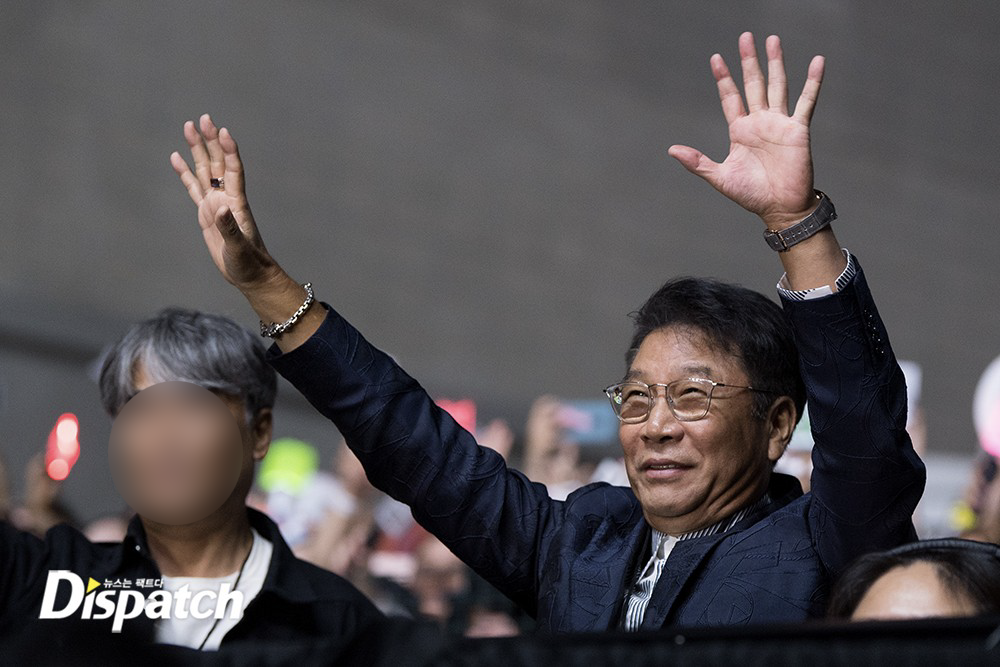
109. A bigger pie made by SM? Now whose mouth did that pie go into?
110. Lee Soo-Man had his mouth open and ready, with SM’s former and present executives feeding him the pie.
111. It is questionable whether or not the executives were all so naïve to not know that the money would go back to Lee Soo-Man.
112. To clarify, Lee Soo-Man was never backstabbed by his nephew.
113. SM’s current management team does not have to feel betrayed or regretful at all.
114. Just one year ago, they all acted as Lee Soo-Man’s representatives, not representatives of SM Entertainment.
115. “Lee Soo-Man is retiring? I don’t know if we will ever be able to find someone like him. That is one of my biggest concerns.” (SM Entertainment’s CEO Lee Sung-Soo)

116. In 2021, SM’s sales reached 417 billion KRW. The operating profit was 74 billion KRW and the license fee was 24 billion KRW.
117. The same year, SM’s net profit margin was 17%. If there had been savings of 24 billion KRW, the net profit margin would have risen to 23%.
118. That year, SM paid 6 billion KRW to four registered executive members. CEOs Lee Sung-Soo and Tak Young-Joon each received 1.8 billion KRW.
119. SM’s net profit margin is last in ranking amongst the ‘Big 3’ agencies for K-pop. However, it is ironic that the bonus the executives received is the highest in the industry.
120. Who really put the interests of shareholders first before themselves?
121. If anyone had done that, then SM would have exponentially grown at least by an additional 400 billion KRW.
122. Now there is no ‘Soo Man’ in SM.
123. Although the disclosure of Lee Soo-Man’s shady secrets is welcome, there should also be a time of reflection from the management team.




